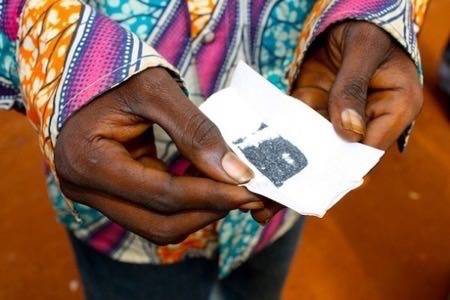
Coltan, Democratic Republic of the Congo
While blood diamonds have been the subject of movies and have received great attention, a far lesser known issue remains – one of conflict minerals, the most common of which include cassiterite, wolframite and coltan as well as the ever lustrous gold.
Much of these minerals are extracted in eastern providences of the Democratic Republic of the Congo, with various factions including both government forces and rebel factions looking to make a profit from these minerals, which are essential in the manufacturer of many high-tech gizmos and gadgets.
Part of the problem is that many of these minerals are necessary for the electronic components while the other part of the problem is that these are found in rather remote areas.
“Most of the assumed supply is in China,” said Glen Hiemstra, futurist and author of “Turning the Future into Revenue: What Businesses and Individuals Need to Know to Shape Their Future.” “There are two sites in the U.S. but one has been considered uneconomic, which is surprising given the need, and the other in Idaho has been undeveloped for environmental reasons.”
As with blood diamonds, efforts have made to curtail the market for conflict minerals – at least in theory. In 2010 the passage of the Dodd-Frank Wall Street Reform and Consumer Protection Act was supposed to create a global transparency standard to help break the link between natural resources and conflict and corruption.
Section 1502 of Dodd-Frank even requires U.S. listed companies using tin, tantalum, tungsten and gold from DRC or neighboring countries to carry out checks on their supply chain, and to disclose annually to the SEC whether their minerals purchases have benefited abusive armed groups.
Yet the trade continues, and according to the Enough Project, which recently issued its second annual company rankings report, “Taking Conflict Out of Consumer Gadgets: Company Rankings on Conflict Minerals 2012,” efforts have improved but some companies are still lagging behind.
While Intel, HP and Apple have reportedly established conflict mineral programs, video game maker Nintendo found itself at the bottom of the list and has reportedly made no efforts to trace or audit its supply chain.
“Companies need to hold a light to their supply chains and sweep the floors to get rid of the dirt,” said Sasha Lezhnev, Enough Project senior policy analyst and co-author of the report. “Firms should trace and audit their supply chains to see who exactly their smelters are, and if they are using only conflict free smelters. They also should help develop a clean minerals trade in Congo, after years of turning a blind eye to their purchases.”
The problem will likely only increase as demand for consumer electronics increases world-wide, especially as China has begun to set limits on the exportation of its rare earth minerals, thus increasing the demand for minerals in conflict zones.
“Smuggling is already increasing because of increased prices for tantalum and gold, so companies need to be extra vigilant in the next months to make sure that the audits are even more thorough than before,” added Lezhnev. “The conflict minerals mafia won’t go down without a fight.”
But could greater efforts at recycling of used consumer electronics to reclaim the conflict minerals help solve this problem while also helping ease the ever-increasing amounts of e-waste that continue to pile up as consumers rush to buy the next big thing?
This would not be without its own new set of problems. While the SEC considers minerals obtained from recycled or scrap source to be DRC conflict free, the SEC does not plan to define what is recycled or scrap material – and companies are left their to establish their own definition, with so-called “supporting explanations.”
“It is possible but unclear, as recycling could also be a loophole for conflict minerals to seep in,” said Lezhnev.
The future is thus not so clear on how this might be resolved, but recycling will likely be one possibility.
“It seems like three alternate paths will emerge,” said Hiemstra, who noted that one could be a greater emphasis on recycling, a search for substitute materials or just as likely, “increased conflict over rare earth access in (places such as) Africa.”
“Given the need, I expect all three scenarios to emerge simultaneously,” he admitted, “along with a more dedicated search for, and development of new sources.”
For those in the conflict zone the search may not come soon enough.
Photo by nikkiwhaites.










